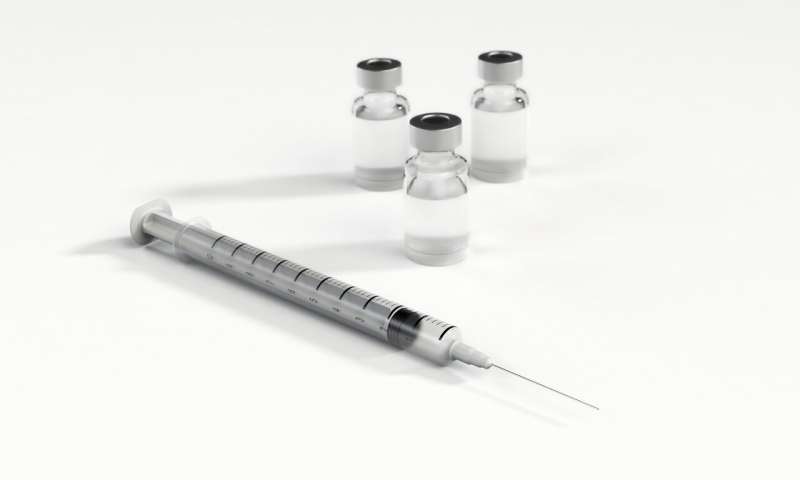Clues to building a better herpes vaccine

Efforts to develop an effective vaccine for genital herpes, a common sexually transmitted disease, have largely failed. In a new study published in Nature, Yale researchers explore why, and their findings could lead to a better vaccine.
Senior investigator Akiko Iwasaki and her colleagues conducted several experiments in mice vaccinated against the herpes simplex virus 2 (HSV-2). The researchers first found that the HSV-2 antibody the body produces in response to vaccination was not present in the vaginal cavity where it is most needed to protect against infection. They also learned that when specialized immune cells, called memory B cells, are physically drawn to the genital area, they produce and insert the antibody in the inner vaginal tissue. Having the antibody circulating in the blood alone is not enough to protect against genital herpes infection, and a different strategy is needed to deliver the protective antibody in the future, Iwasaki said.
These results may explain why herpes vaccines that have been developed to date have not worked, say the researchers. The findings also support a different approach to vaccination, such as "prime and pull," which Iwasaki's lab has been investigating. This strategy involves combining conventional vaccination to trigger an immune response throughout the body (prime) and "chemokines," or signaling proteins, in vaginal tissue to attract another immune cell type, memory T cells, to the site where infection happens (pull). The team is currently working on establishing a successful prime-and-pull vaccine based on T cells and B cells.
More information: Ji Eun Oh et al. Migrant memory B cells secrete luminal antibody in the vagina, Nature (2019). DOI: 10.1038/s41586-019-1285-1

















